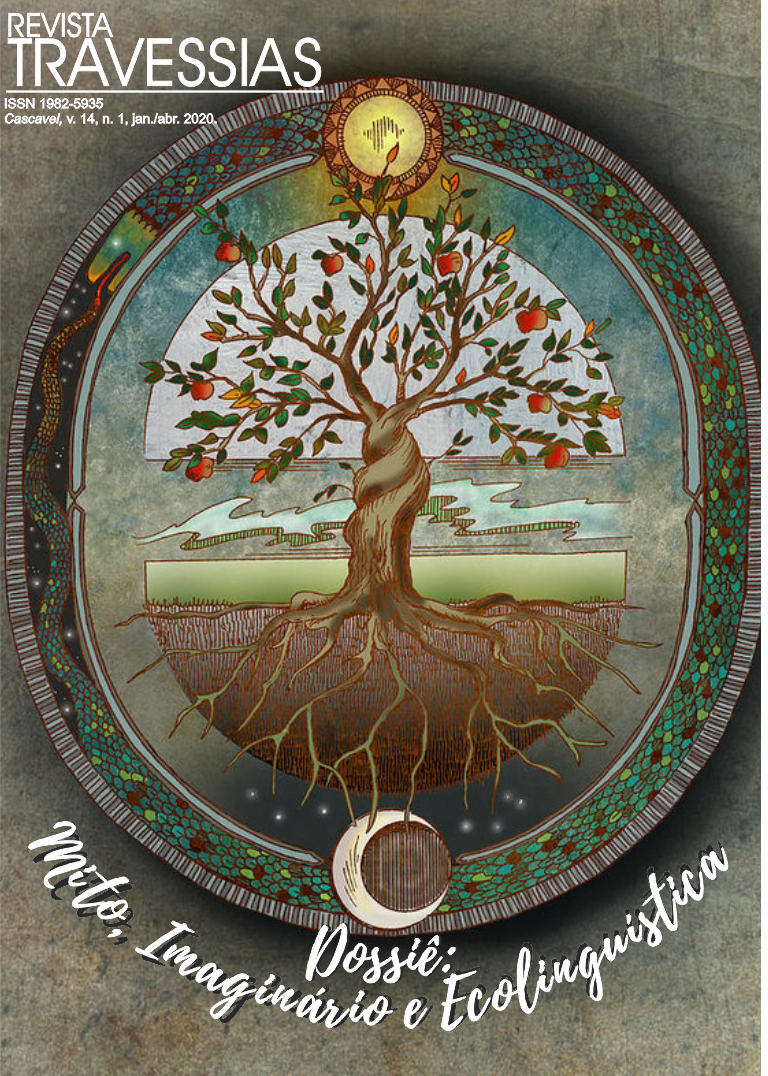Your excellences, were you offended?
DOI:
https://doi.org/10.48075/rt.v14i1.24170Keywords:
Argumentation, Law, Forms of treatment, Communicative interaction.Abstract
The variation in the forms of treatment of the second person speech gives rise to several discussions (still) today. With the knowledge of the theoretical bases that support the view of the ecology of communicative interaction (COUTO, 2014), this article discusses - from the perspective of the social ecosystem of language - argumentative and interactional strategies used by law professionals to justify the use of forms of treatment in a judicial sentence available on websites and, in another case, during a session of the Supreme Federal Court. Based on the theory proposed by Couto et al. (2016), from a multi-methodological perspective, based on Critical Ecosystem Linguistics (LEC), in the perspectives of the theories of Interactional Sociolinguistics, with authors such as Kerbrat-Orecchioni (2006), Irvine (1978) Grácio (2010), Blommaert (2014), Ochs (1979), Levinson (1992), which involve concepts about argumentation and Conversation Analysis, the corpus was analyzed specifically in the cropped part exposed in some news sites - such as Exame, Terra and Época - and platforms for sharing digital information - like Instagram and Twitter. The methodological guidance is qualitative, documentary and bibliographic, with data collection in the virtual public domain. The analysis of the corpus includes results based on concepts in the area such as diversity, (dis)harmony, adaptation in language, communion and social suffering - the latter caused, mainly, by the repercussion of criticism in the virtual environment.
Downloads
References
AMOSSY, R. A argumentação no discurso. São Paulo: Contexto, 2018.
ANDRADE, Queiroz Carolina. Tu e mais quantos? – A segunda pessoa na fala brasiliense. Dissertação (Mestrado em Linguística) – Instituto de Letras, Universidade de Brasília: Brasília, 2010.
BLOMMAERT, J. Language Ideology. In: BROWN, K. (ed.). Encyclopedia of Language & Linguistics, vol. 6, 2006, p. 510-522.
BLOMMAERT, J. Language Ideologias linguísticas e poder. Trad. Ive Brunelli. In: SILVA, D. N.; FERREIRA, D.M.M.; ALENCAR, C. N. Nova Pragmática: modos de fazer. São Paulo: Cortez, 2014, p. 67-77.
COUTO, Elza Kioko Nakayama Nenoki et al. Linguística Ecossistêmica: 10 Anos de Ecolinguística no Brasil. Campinas: Pontes Editores, 2017.
COUTO, Elza K. N. N.; ALBUQUERQUE, Davi. Análise do discurso ecológica: fundamentação teórico-metodológica. Revista de Estudos da Linguagem, Belo Horizonte, v. 23, n.2, p. 485-509, 2015.
COUTO, Hildo Honório do. Ecolinguística: estudo das relações entre língua e meio ambiente. Brasília: Thesaurus, 2007.
COUTO, Hildo Honório do. 2016. Linguística ecossistêmica. In: COUTO, COUTO, ARAÚJO & ALBUQUERQUE (orgs.), p. 209-261. Disponível em: http://periodicos.unb.br/index.php/erbel/article/view/9967/8800 . Acesso em: 08 jul. 2019.
COUTO, Hildo Honório do. Linguística ecossistêmica crítica ou análise do discurso ecológica. In: COUTO, Elza; DUNCK-CINTRA, Ema; BORGES, Lorena. Antropologia do imaginário, ecolinguística e metáfora. Brasília: Thesaurus, 2014b, p. 27-41.
DIAS, Edilene Patrícia. O uso do tu no português brasiliense falado. 2007. 114f. Dissertação (Mestrado em Linguística) – Instituto de Letras, Universidade de Brasília, 2007.
FIGUEROA, Esther. John Gumperz and Interactional Sociolinguistics: intentionality, interpretation and social meaning. In: Sociolinguistic Metatheory. New York: Elsevier, 1994.
GOODWIN, Jean. A argumentação não tem função. Comunicação e Sociedade, vol. 16, 2009.
GRÁCIO, Rui, A. A interacção argumentativa. Coimbra: Grácio Editor, 2010.
IRVINE, Judith T. Formality and Informality in Communicative Events. Brandeis University, 1978.
IRVINE, Judith T. Formality and Informality in speech events. In: Sociolinguistic working paper. n.52, Austin Texas, Southwest Development Laboratory, 1984.
KERBRAT-ORECCHIONI, Catherine. Análise da conversação: princípios e métodos. São Paulo: Parábola, 2006.
LEVINSON, Stephen C. Activity types and language. In: Talk at work. New York: Cambridge University Press, 1992.
LOPES, Célia Regina dos Santos. A cronologia do Voceamento no português brasileiro: expansão de você-sujeito e retenção do clítico-te. Lingüística. Vol. 25, junho 2011, p.30-65. ISSN 1132-0214.
LOREGIAN-PENKAL, Loremi. (Re)análise da referência de segunda pessoa na fala da Região Sul. 260f. Tese (Doutorado em Linguística) – Universidade Federal do Paraná, 2004.
MODESTO, Artarxerxes Tiago Tácito. Formas de tratamento no português brasileiro: a alternância tu/você na cidade de Santos-SP. Revista Letra Magna. Ano 04 n.07 – Segundo semestre de 2007. ISSN 1807-5193.
OCHS, Elinor. Planned and unplanned discourse. In: Sintax and semantics discourse and syntax. New York: Academic Press, 1979, vol 12.
OLIVEIRA, D. P. Ideologias de linguagem acionadas por docentes indígenas em formação superior: tensões no espaço da diferença colonial. Dissertação de Mestrado. Programa de Pós-Graduação em Letras e Linguística. Universidade Federal de Goiás. Goiânia, 2018.
PRADO, Juliana B. do. Um estudo sobre a variação da segunda pessoa do discurso no contexto do Tribunal do Júri. Dissertação (Mestrado em Linguística) – Universidade de Brasília (UnB), 2013.
PRETI, Dino. O discurso oral culto. São Paulo: Associação Editorial Humanitas, 2005.
Downloads
Published
How to Cite
Issue
Section
License
Creative Copyright Notice
Policy for Free Access Journals
Authors who publish in this journal agree to the following terms:
1. Authors keep the copyright and grant the journal the right of first publication, with the work simultaneously licensed under the Creative Commons Attribution License, which allows sharing the trial with acknowledgment of authorship and initial publication in this journal.
2. Authors are authorized to take additional contracts separately, for non-exclusive distribution of the work version, published in this journal (eg publish in institutional repository or as a book chapter), with acknowledgment of authorship and initial publication in this journal.
3. Authors are allowed and encouraged to publish and distribute their work online (eg in institutional repositories or on their personal page) at any point before or during the editorial process, as this can generate productive changes, as well as increase both impact and citation of the published trial (See The Effect of Free Access).
Creative Commons License
This work is licensed under a Creative Commons Attribution–NonCommercial-shareaswell 4.0 International License, which allows you to share, copy, distribute, display, reproduce, completely or part of the work, since there is no commercial purpose, and authors and source are cited.



